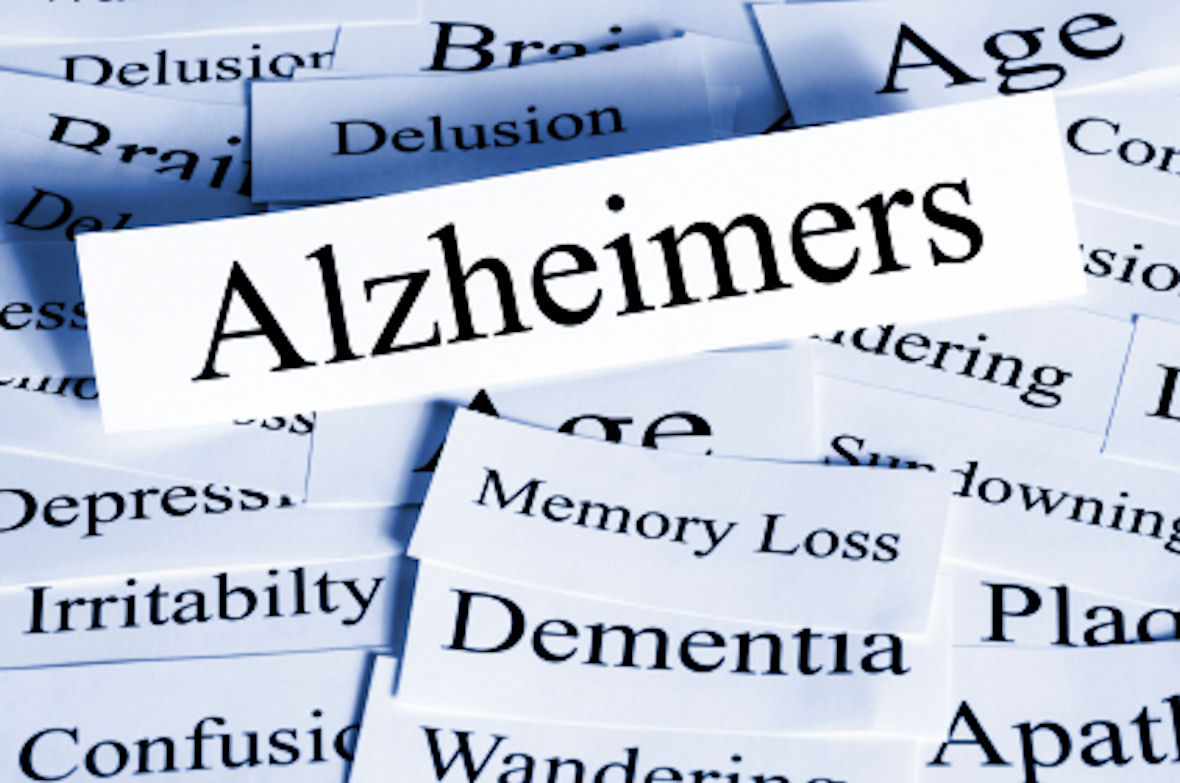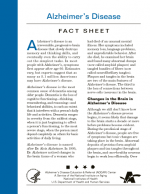(Alzheimer’s Disease Education and Referral Center) Alzheimer’s disease is an illness of the brain. It causes large numbers of nerve cells in the brain to die. This affects a person’s ability to remember things and think clearly. People with AD become forgetful and easily confused. They may have a hard time concentrating and behave in odd ways. These problems get worse as the illness gets worse, making your job as caregiver harder.
It’s important to remember that the disease, not the person with AD, causes these changes. Also, each person with AD may not have all the problems we talk about in the publication.
The following sections describe the three main challenges that you may face as you care for someone with AD:
- changes in communication skills
- changes in personality and behavior
- changes in intimacy and sexuality
Each section includes information on how to cope with these challenges. If you would rather get a copy of this publication for your own use (than read it here), click: Print this publication (Download PDF 5.96 MB) »
1. Challenge: changes in communication skills
| “Talking with Dad is hard. Often, I don’t understand what he is trying to say or what he wants. We both get pretty frustrated sometimes.” |
Communication is hard for people with AD because they have trouble remembering things. They may struggle to find words or forget what they want to say. You may feel impatient and wish they could just say what they want, but they can’t. It may help you to know more about common communication problems caused by AD. Once you know more, you’ll have a better sense of how to cope.
Here are some communication problems caused by AD:
- Trouble finding the right word when speaking
- Problems understanding what words mean
- Problems paying attention during long conversations
- Loss of train-of-thought when talking
- Trouble remembering the steps in common activities, such as cooking a meal, paying bills, getting dressed, or doing laundry
- Problems blocking out background noises from the radio, TV, telephone calls, or conversations in the room
- Frustration if communication isn’t working
- Being very sensitive to touch and to the tone and loudness of voices
Also, AD causes some people to get confused about language. For example, the person might forget or no longer understand English if it was learned as a second language. Instead, he or she might understand and use only the first language learned, such as Spanish.
How to cope with changes in communication skills
The first step is to understand that the disease causes changes in these skills. The second step is to try some tips that may make communication easier. For example, keep the following suggestions in mind as you go about day-to-day care.
To connect with a person who has AD:
- Make eye contact to get his or her attention, and call the person by name.
- Be aware of your tone and how loud your voice is, how you look at the person, and your “body language.” Body language is the message you send just by the way you hold your body. For example, if you stand with your arms folded very tightly, you may send a message that you are tense or angry.
- Encourage a two-way conversation for as long as possible. This helps the person with AD feel better about himself or herself.
- Use other methods besides speaking to help the person, such as gentle touching to guide him or her.
- Try distracting someone with AD if communication creates problems. For example, offer a fun activity such as a snack or a walk around the neighborhood.
| “Every few months I sense that another piece of me is missing. My life… my self… are falling apart. I can only think half-thoughts now. Someday I may wake up and not think at all.” — From “The Loss of Self” |
To encourage the person with AD to communicate with you:
- Show a warm, loving, matter-of-fact manner.
- Hold the person’s hand while you talk.
- Be open to the person’s concerns, even if they are hard to understand.
- Let him or her make some decisions and stay involved.
- Be patient with angry outbursts. Remember, it’s the illness “talking.”
- If you become frustrated, take a “timeout” for yourself.
To speak effectively with a person who has AD:
- Offer simple, step-by-step instructions.
- Repeat instructions and allow more time for a response. Try not to interrupt.
- Don’t talk about the person as if he or she isn’t there.
- Don’t talk to the person using “baby talk” or a “baby voice.”
Here are some examples of what you can say:
- “Let’s try this way,” instead of pointing out mistakes
- “Please do this,” instead of “Don’t do this”
- “Thanks for helping,” even if the results aren’t perfect
You also can:
- Ask questions that require a yes or no answer. For example, you could say, “Are you tired?” instead of “How do you feel?”
- Limit the number of choices. For example, you could say, “Would you like a hamburger or chicken for dinner?” instead of “What would you like for dinner?”
- Use different words if he or she doesn’t understand what you say the first time. For example, if you ask the person whether he or she is hungry and you don’t get a response, you could say, “Dinner is ready now. Let’s eat.”
- Try not to say, “Don’t you remember?” or “I told you.”
Helping a Person Who Is Aware of Memory Loss
AD is being diagnosed at earlier stages. This means that many people are aware of how the disease is affecting their memory. Here are tips on how to help someone who knows that he or she has memory problems:
- Take time to listen. The person may want to talk about the changes he or she is noticing.
- Be as sensitive as you can. Don’t just correct the person every time he or she forgets something or says something odd. Try to understand that it’s a struggle for the person to communicate.
- Be patient when someone with AD has trouble finding the right words or putting feelings into words.
- Help the person find words to express thoughts and feelings. For example, Mrs. D cried after forgetting her garden club meeting. She finally said, “I wish they stopped.” Her daughter said, “You wish your friends had stopped by for you.” Mrs. D nodded and repeated some of the words. Then Mrs. D said, “I want to go.” Her daughter said, “You want to go to the garden club meeting.” Again, Mrs. D nodded and repeated the words.
- Be careful not to put words in the person’s mouth or “fill in the blanks” too quickly.
- As people lose the ability to talk clearly, they may rely on other ways to communicate their thoughts and feelings.
For example, their facial expressions may show sadness, anger, or frustration. Grasping at their undergarments may tell you they need to use the bathroom.








